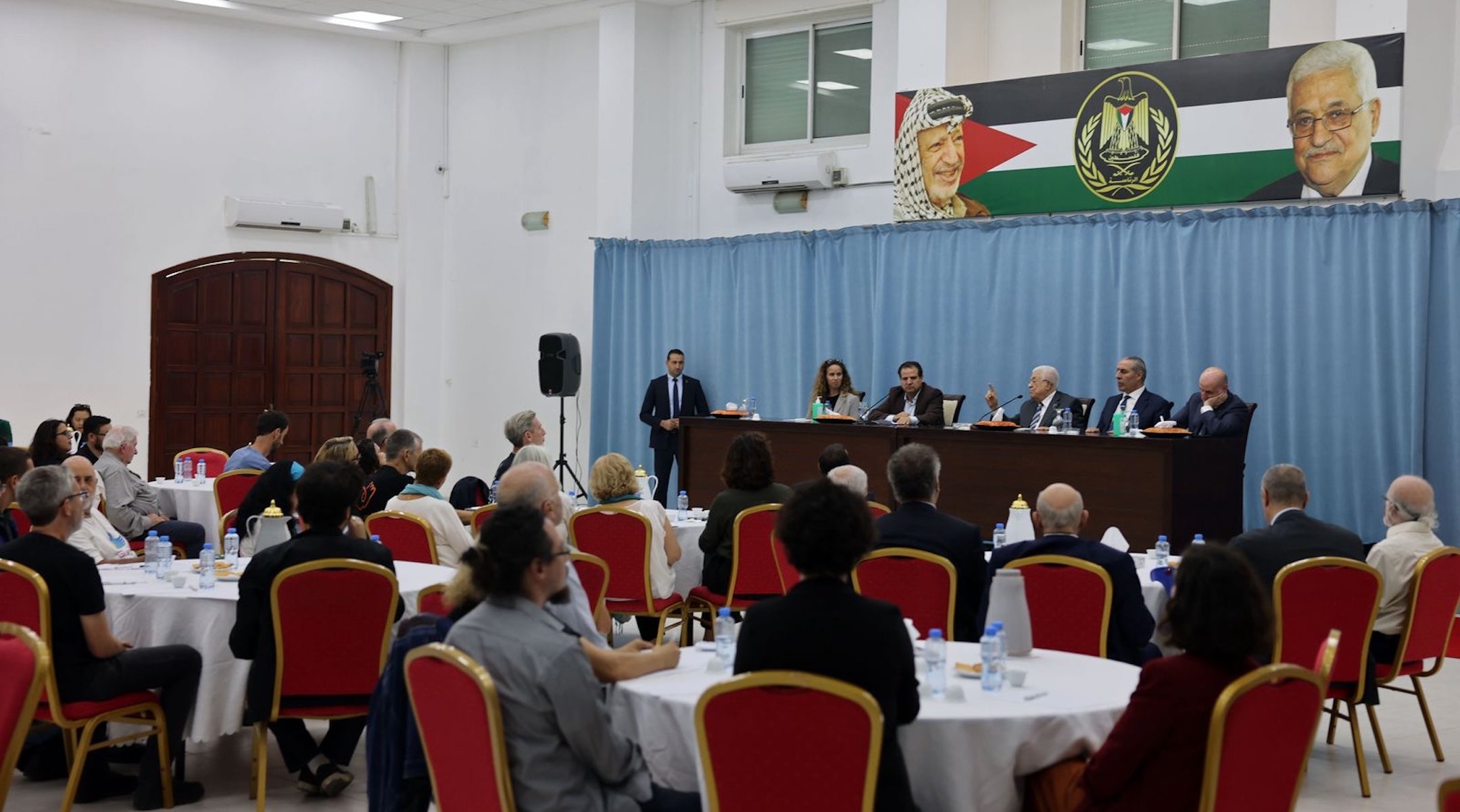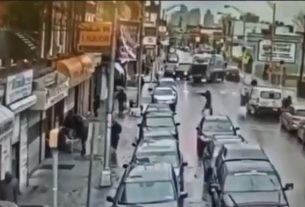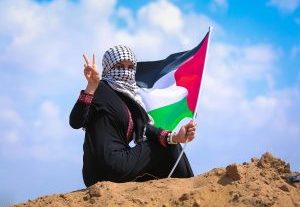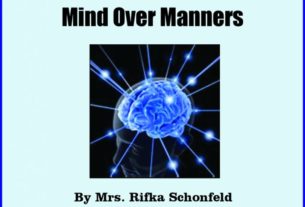RAMALLAH, West Bank — As a teacher at a school in the Galilee in northern Israel, peace activist Shoshana Lavan says students often told her during the war, “Don’t talk to me about peace.”
But just hours after a ceasefire agreement was reached between Israel and Hamas, she was beaming with hope. “I feel like I can turn around and tell them, ‘I told you so,’” she said with a smile.
At that moment, she sat in the glistening white marble dining hall of al-Muqata’a, the presidential palace for the Palestinian Authority.
A self-described idealist who made aliyah six years ago from England in part to do anti-occupation work, Lavan and her husband, Baruch Velleman, joined about 50 other Jewish and Arab peace activists who took a bus from across the Green Line to meet with Palestinian Authority President Mahmoud Abbas in the heart of Ramallah. With the two groups originally planning to meet to call for the end of the war, upon the ceasefire announcement, they went further in calling for both sides to build on the initial agreement to end Israel’s military occupation and create long-lasting solutions to the Israeli-Palestinian conflict.
“I welcome today’s agreement, the cessation of hostilities, and the release of the hostages,” Abbas said at the meeting, commending the delegation for “strengthen[ing] hope for peace.”
“Hope begins today, and now we must ensure that we continue to implement peace,” he said. “Every Israeli who believes in peace is our brother.”
The activists, as part of the “It’s Time” Coalition representing 60 Israeli peace and reconciliation organizations, called the unusual gathering among Israeli peace activists and the Palestinian president “historic” and “symbolically significant.”
Israeli peace activists stand in the middle of Al-Muqata’a compound, Oct. 9, 2025. (Steven Davidson)
But the meeting came after Abbas and the P.A. were largely squeezed out of discussions on the future of Gaza by both the Israeli and American governments. The ceasefire deal, brokered by U.S. President Donald Trump without involvement by the P.A., came just weeks after Abbas was denied a visa by the United States to visit New York for this year’s U.N. General Assembly, where several European countries officially recognized an independent Palestinian state for the first time.
For years, the current Israeli government, led by Prime Minister Benjamin Netanyahu, has targeted Abbas’ PA government due to its track record of paying stipends to Palestinians in Israeli prisons, including those convicted of committing violent acts to Israeli citizens, as well as for textbooks used in Palestinian classrooms allegedly glorifying violence and extremist views.
Abbas changed those policies earlier this year amid the European countries’ statehood shift. But the changes did not appease Netanyahu or his governing partners, including Finance Minister Bezalel Smotrich, who has several times withdrawn tax revenue earmarked for the Palestinian Authority government, which has limited self-autonomy in parts of the West Bank.
The unprecedented meeting between Israeli activists and leaders of the PA served for the participants as a bridge for discussion and reconciliation, with Mika Almog, the content director for It’s Time, calling the encounter “what things ought to be like.”
“It feels like what should be our normal existence,” said Almog. “It feels like we should be talking to one another and solving our problems and hearing one another and sharing a meal, as we did here.”
For some including Velleman, a longtime peace activist over many decades, the gathering at Al-Muqata’a encapsulated years of efforts to bring together disparate Israeli activist groups under one umbrella — an effort that finally congealed as the devastating war in Gaza raged, the Israeli hostages languished in Hamas tunnels, and thousands protested outside the Israeli Knesset and at Hostage Square in Tel Aviv for months.
Now, the ceasefire deal left some of the attendees trying to put the pieces together of what it all meant.
“However much we hate Trump, maybe we needed Trump in order to do what he’s done now,” wondered Velleman aloud at the dining table. “Only somebody with a massive ego, who’s crazy and knows how to lie totally and bully. Sometimes to beat a bully, you need a bigger bully.”
During the meeting, the peace activists and the Palestinian president, spurned and antagonized by political forces that brokered the deal, expressed a deep appreciation for one another. Activists shook Abbas’ hand, and one offered him a hug. Abbas conveyed his sympathies to Yonatan Zeigen, the son of the activist Vivan Silver who was killed during the Oct. 7, 2023, Hamas massacre, and after Israeli activist Lea Shkeydel spoke on the Jewish value of saving lives, Abbas cited a line from the Quran: “Whoever saves a life, it will be as if they saved all of humanity.”
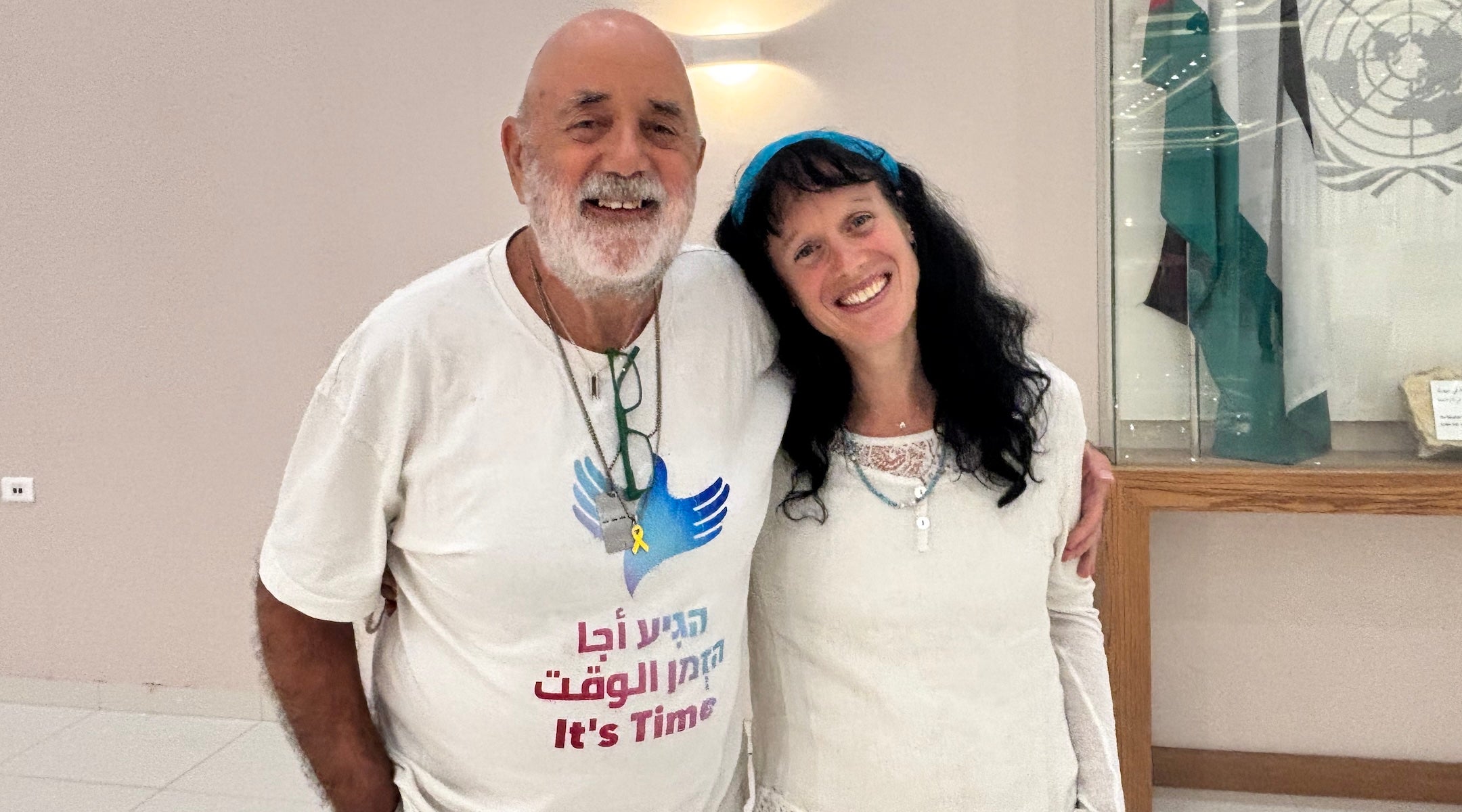
Baruch Velleman and Shoshana Lavan moved to Israel to participate in peace activism. They met with Palestinian Authority President Mahmoud Abbas in Ramallah, Oct. 9, 2025. (Steven Davidson)
One speaker shared with Abbas a petition signed by over 10,000 Israelis to recognize a Palestinian state, and the delegation presented to the Palestinian president an invitation to the group’s People’s Peace Summit, scheduled for May.
“We want to work together in cooperation for hundreds of years to come,” Abbas told the delegation.
Amid the generally ebullient atmosphere, some speakers reflected on how the preceding two years had transformed them. Zeigen looked back at “a time I felt helpless to shape political reality around me.”
“That changed on Oct. 7 when this fantasy of ignoring occupation could no longer continue,” he said. Zeigen called for not only ending the war and releasing the hostages, but to end Israel’s military occupation of the West Bank.
With “It’s Time” representing a broad spectrum of anti-war groups, some attendees privately expressed pessimism of what came next, including Roy Talmon, a member of an Israeli activist group called Looking at the Occupation in the Eye that provides protective presence to Palestinian communities in Area C, the 60% of the West Bank under Israeli civil and military law, while documenting alleged Israeli settler attacks. Such attacks have surged in recent years as, their critics say, settlers have been emboldened by Israel’s right wing government.
“Of course, I welcome the signing of the agreement to stop the genocide in Gaza and the release of the hostages and prisoners,” said Talmon. “However, the lack of involvement of the Palestinian Authority is disturbing and the situation in the West Bank is also very fragile.”
Talmon fears that after the hostages are returned, fighting in Gaza may resume, or violence in the West Bank will escalate.
“As a society, we have a very long way to go, and right now there doesn’t seem to be a willingness to start it,” he said. “And that’s without saying a word about the crimes committed in Gaza, in which most Israeli society is complicit.”
In spite of the wider marginalization these two groups now face — progressive Israeli activists, demonized by the ascendent Israeli right; and the beleaguered PA, long unpopular among Palestinians in the West Bank and now cut out of negotiations by Netanyahu and Trump — the participants celebrated the gathering as a special occasion to lay the groundwork for outreach beyond the Green Line, despite the several tables empty in the back of the room.
Lavan says she hopes the ceasefire agreement will build towards a lasting peace, connecting the pivotal moment with past struggles.
“One day the Irish were blowing up my city in Birmingham, where I was born,” said Lavan, “and the next day we were celebrating in the streets because there was peace, just like that.”
In fact, it took 24 years after the Birmingham pub bombings for the Good Friday agreement to be signed in 1998.
The activists are hoping for a shorter timeline in their neighborhood. Less than 24 hours after the ceasefire was announced, they were already discussing what comes next in their efforts to bring about a lasting peace in the Middle East.
“Now, our work really starts,” declared Velleman.
Keep Jewish Stories in Focus.
(JEWISH REVIEW) has documented Jewish history in real-time for over a century. Keep our journalism strong by joining us in supporting independent, award-winning reporting.

